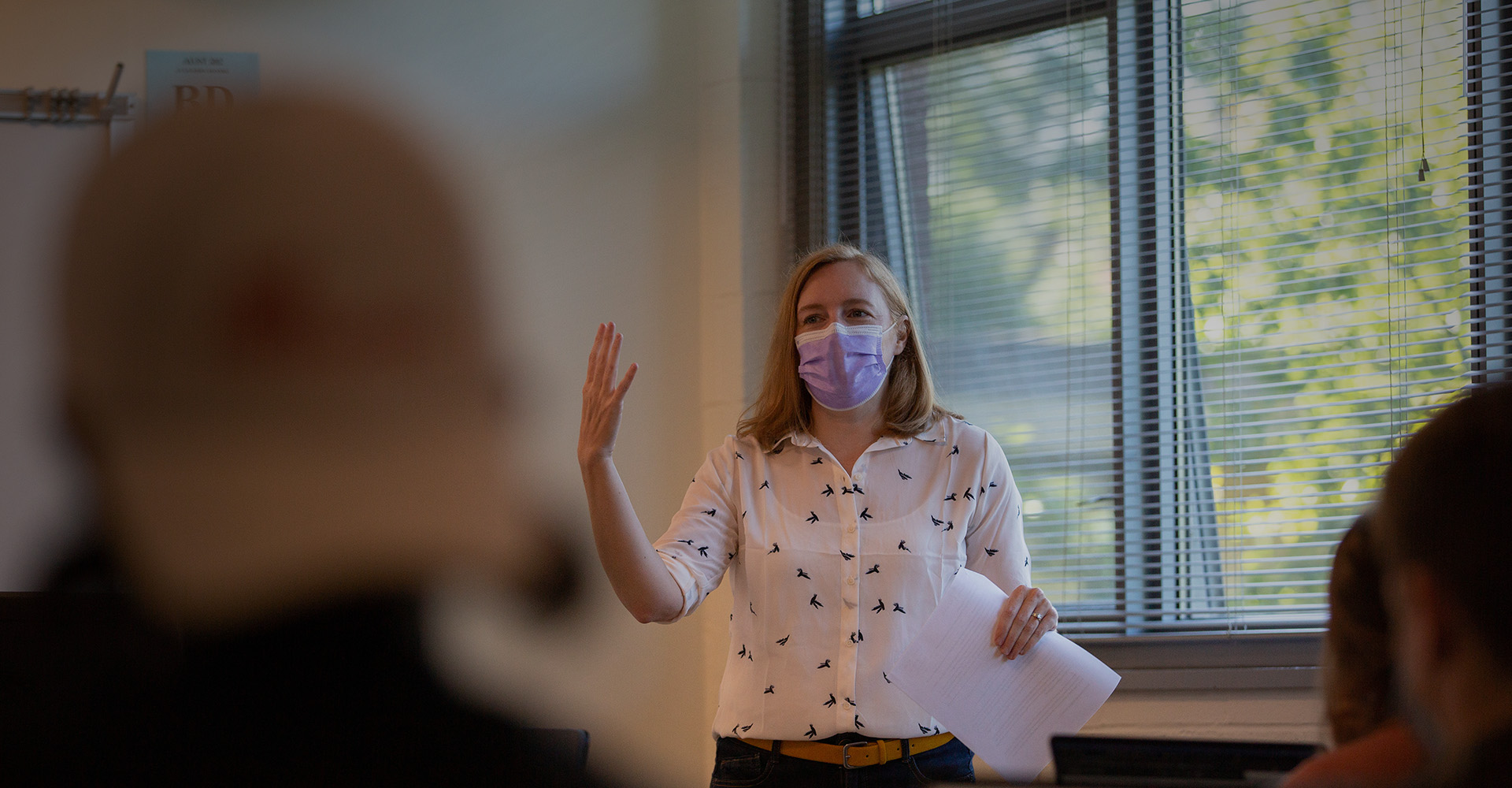by Emily Graham, ’22 (CLAS)
Considered to go into effect for Fall 2022, the UConn English department will no longer require students to follow the typical graduate school capstone: the written dissertation. Sitting down with Professor Victoria Ford Smith, Emily Graham discusses how the dissertation could evolve from 2022 onward, hoping to grant greater creative freedom — and more exciting opportunities — to graduate students.
In a future academic year, English faculty and graduate students could start thinking beyond the confines of the book-length dissertation. Intent on researching alternative options for what a dissertation project could look like in the 21st century, interested English faculty and graduate students formed the Rethinking Dissertation Committee last fall. And while it’s headed by the likes of Professors Ford Smith, Pelizzon, Mahoney and Somerset, Victoria Ford Smith, the committee’s creation was inspired by the students.
The current, and usual, format of the graduate program ended with the traditional monograph, otherwise known as the prototype for a student’s first book. “But that assumes a lot of things about our students,” mused Professor Smith, “particularly that they want to become professors or publish books. Not all students who go to graduate school do.”

It soon became clear that perhaps the dissertation could change, as it was obvious that offering “different types of dissertations could give students different types of career preparation.”
The committee had to abandon all assumptions on what a dissertation “should be” before they got to work on constructing a new definition. Instead of just papers, students argued that other forms of media — such as the creation of films, public articles, and podcasts — could be useful for a range of future careers.
It’s not all about English, though. “We had been considering the creation of this committee for a while now because we wanted to include the broader concept of the Humanities,” Smith expands. “With this new program, we hope to bring graduate students closer to the university as a whole; that is, connect students with the overarching graduate school and all of their many resources. That will give students a lot more flexibility and adaptability as to what they can pursue.”
While graduate faculty are still considering the advantages and obstacles of expanding the definition of the dissertation, Smith thinks these potential changes could be exciting for graduate students. “These possibilities for the dissertation are innovative and take the desires of the modern, creative student into account. And this wouldn’t be possible without our faculty. We’re grateful that they are so open to reconsidering the dissertation.”